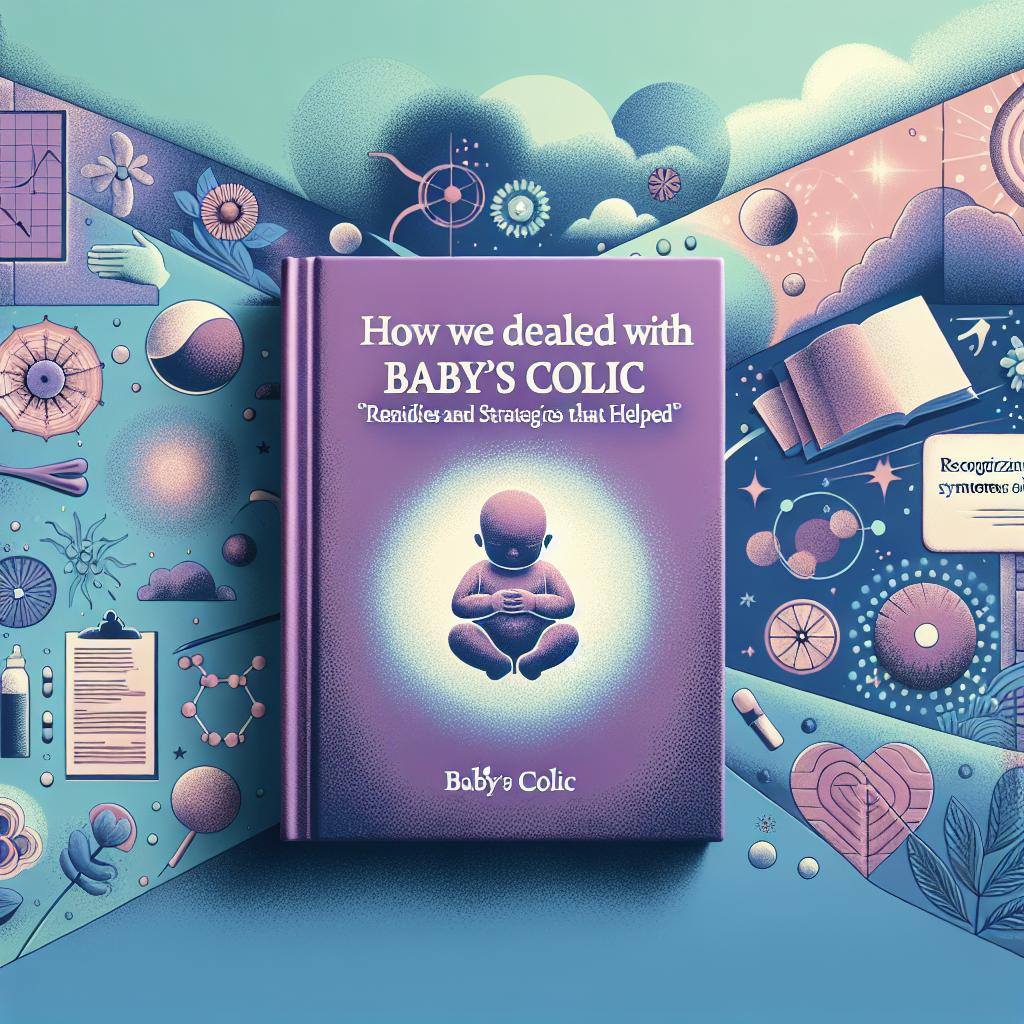Recognizing the Symptoms
The first step in managing colic is understanding and recognizing the symptoms. According to Family Doctor, typical signs of colic include episodes of intense, unexplained crying that lasts 3 hours or more, disrupted sleep patterns, and often a noticeable increase in gas. This can be a distressing time for both the baby and parents, but it’s crucial to remember that colic is relatively common and is not indicative of any serious health issue.
Soothing Techniques
There are several soothing techniques that we found particularly helpful while managing our baby’s colic.
- Physical Contact: Holding your baby close, skin-to-skin, if possible, can provide comfort and reassurance. The extra warmth and familiar scent can be soothing.
- Gentle Movement: Rocking your baby, taking them for a car ride, or using a baby swing can often help. The rhythm and vibrations can be comforting and calming.
- Sound: White noise, lullabies, or soft humming can mimic the sounds your baby heard in the womb, providing a familiar and comforting environment.
We found these techniques invaluable during our journey with colic. The Children’s Hospital of Philadelphia also lists these as effective methods for soothing a colicky baby.
Home Remedies
In addition to professional advice, there are also a few home remedies that can be tried to alleviate colic symptoms. It’s always best to discuss these with your healthcare provider before trying them with your baby.
- Infant Massage: Gentle abdominal massages can help to relieve gas and comfort your baby. Use a light touch and rub in a clockwise direction.
- Warm Bath: A warm bath can soothe a baby’s tummy and relax them, helping to reduce crying spells.
- Dietary Changes: If you’re breastfeeding, consider modifying your diet to see if certain foods are triggering your baby’s colic.
The Cleveland Clinic provides further information and guidance on various home remedies for colic.
Creating a Positive Parenting Experience
Navigating the journey of colic can be challenging, but it’s critical to maintain a positive parenting experience throughout. Your baby can sense your stress levels, and staying calm and patient can provide them the comfort they need. Developing strategies for your emotional well-being is just as crucial during this phase, which you can find more about in our post about creating a positive parenting experience.
Just like every other parenting challenge, it’s vital to remember that this phase won’t last forever. With patience, care, and the right soothing techniques, you will be able to ease your baby’s discomfort and ease them through the colic period.
Medical treatments
Several medical treatments may also facilitate managing your baby’s colic. Always consult your doctor before giving your baby any new medications or supplements.
- Over-the-Counter Remedies: Certain gas-relief medicines, such as simethicone, have been found to offer some relief. Always adhere to the prescribed dosage.
- Probiotics: Probiotic drops may help balance your baby’s gut bacteria, potentially reducing colic symptoms.
- Prescription Medication: In rare instances, your healthcare provider might suggest prescription medications. It’s crucial to follow all instructions and dosage guidelines strictly.
A wealth of further information on these treatments is available from the Mayo Clinic and WebMD.
Professional Support
If you feel overwhelmed or unsure about how to deal with your baby’s colic, remember there is plenty of professional support available.
- Paediatricians: Regular consultations can help track your baby’s progress and adjust treatments as necessary.
- Nurse Hotlines: Many hospitals offer hotlines for instant advice and reassurance.
- Support groups: Speaking to other parents going through the same stress can provide comfort, understanding, and helpful insights.
Recognizing Colic Patterns
Understanding your baby’s colic patterns can help anticipate and manage colic episodes better. Make a note of when and how often your baby seems distressed, what triggers may be present, and what soothing methods seem effective. WebMD offers tips and advice on recognizing these patterns.
Feeding Techniques
Changing feeding techniques can sometimes alleviate colic symptoms.
- Feeding Positions: Keeping your baby upright during feeding can help reduce air swallowing, potentially reducing gas-related discomfort.
- Feeding Intervals: Smaller, more frequent feeds can be easier for your baby to digest and reduce discomfort.
- Bottle Choice: Anti-colic bottles and nipples designed to minimize swallowed air can be helpful.
Patience is Key
Dealing with a colicky baby can be stressful, but remember that it typically resolves itself within a few months. Your baby needs your calm and patient attention during this time.
Take Care of Yourself
While caring for your baby, don’t forget to look after yourself. Self-care is essential and can make you better equipped to handle the demands of a colicky baby. Find more techniques at NHS.
